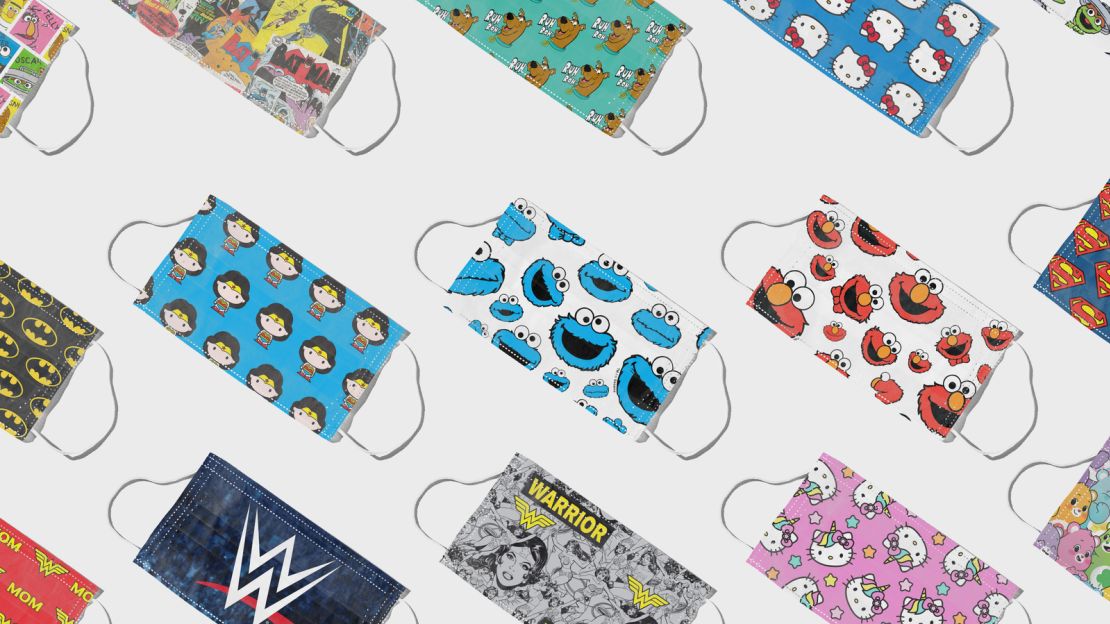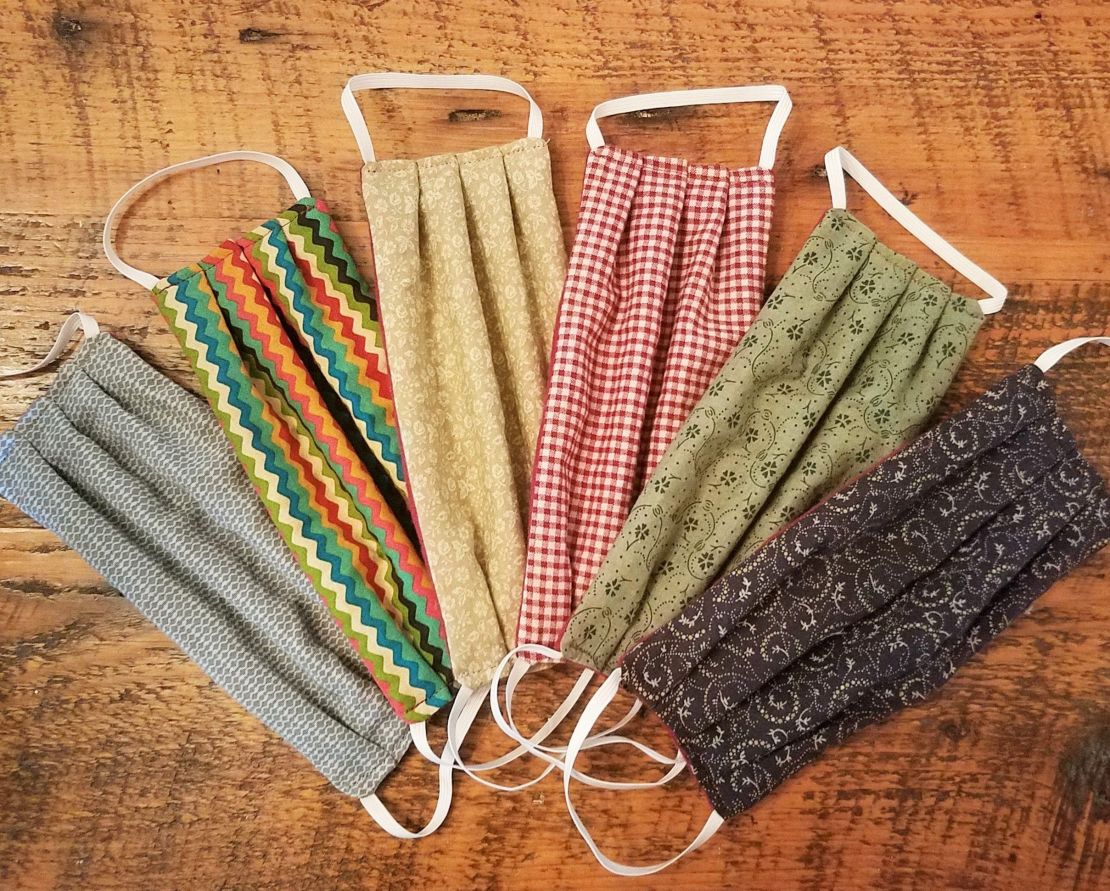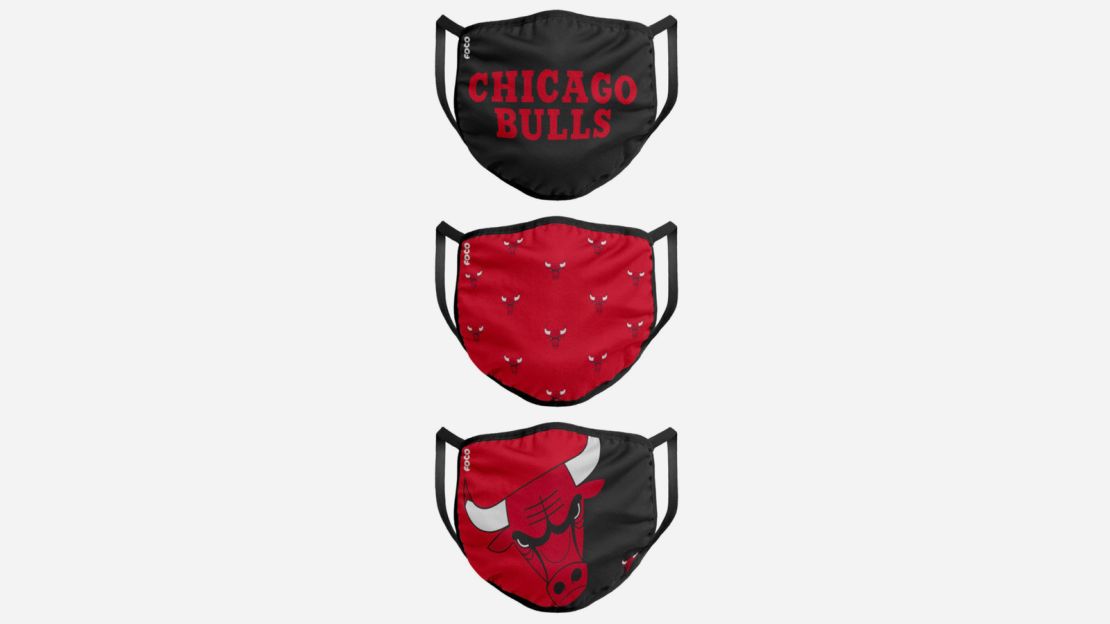Face masks became a wardrobe essential last month when a federal health agency recommended Americans wear them in public to help contain the spread of coronavirus.
After the Centers for Disease Control and Prevention changed its guidelines on the cloth coverings, it was only a matter of time before brands saw an opportunity.
The result: adults and children who want to spruce up their masked looks can now do so with emojis, sports teams and superheros.
Disney is selling cloth face masks featuring Anna and Elsa, Woody and Buzz Lightyear and Baby Yoda, among other characters. Sports leagues like the NBA and NFL are also selling licensed face masks with team logos.
One startup, MaskClub.com, even offers a monthly subscription service that launched in early April for reusable cloth face masks featuring a few thousand licensed designs such as Betty Boop, NASA and images from iconic TV hits like Beverly Hills 90210.

Industry experts say that brands must be careful to avoid appearing to want to profit from an essential item during a pandemic. So far, most big names are donating all or some of the proceeds from the masks to charities.
Disney, for instance, is donating up to $1 million of the profit from its masks to Medshare, a humanitarian organization that delivers medical equipment and supplies to communities in need around the world.
Similarly, the NBA is donating all proceeds of its licensed face masks to the charities Feeding America and Second Harvest in Canada.
But over time, that approach could change as consumers become more at ease with face masks as a daily habit, and embrace having fun with them, said Marty Brochstein, senior vice president at Licensing International, the trade organization for the licensing industry.
“At some point, we will see that brands won’t be as conscious of seeing the sale of branded face masks as legitimate commerce,” he said.
Part of the appeal is that if consumers are wearing masks bearing logos, it’s essentially free advertising for the brands behind them, he said.
“We do believe that there will be a commercial opportunity around face coverings as we anticipate this becoming a staple in everyone’s wardrobe,” said Lisa Piken Koper, senior vice president of merchandising partnerships with the NBA.
“We will continue to sell them on NBAStore.com and WNBAStore.com with the charitable component through 2020 and re-evaluate any changes to the program next year,” she added.
The trend in branded face coverings comes at a time when mask sales are booming.
The online marketplace Etsy has sold 12 million, or $133 million worth, of fabric face masks from 60,000 sellers since the beginning of April. Gap (GPS)and other retailers as well as celebrities like Kim Kardashian have jumped on the face mask bandwagon, offering their own version of the wardrobe staple.
Discovering a ‘Popeye’ mask
Although estimates are hard to come by, at least one company is already betting big on the market potential for branded masks.
“We’re talking as many as five billion face masks could be utilized in the first 12 months,” said Michael Lewis, CEO of FOCO, a New Jersey-based manufacturer and retailer of officially licensed sports and entertainment merchandise.
“Let’s put this in perspective. Most of us didn’t have a cloth mask at home before the pandemic,” said Lewis. “Face masks are now an essential item. Just like with socks and underwear, we can’t just have one.”

Branded masks also helped save another licensing company.
Like many businesses hit hard by the pandemic and a subsequent collapse in consumer spending, Trevco, a large manufacturer of licensed products in Madison Heights, Michigan, saw its licensed clothing and accessories business drop by 60% going into April.
Its founder Trevor George had to think of something fast to save his business and its 150 employees from losing their jobs. It was his wife who gave him the idea of leveraging the company’s licensing deals and parlaying them into a new product category for the company – branded face masks.
Within four days of that conversation, he lined up a North Carolina-based manufacturer to make 50,000 masks a week and started MaskClub.com.
Customers are charged $9.99 every month for a double-ply mask, or $13.99 for a single mask. Right now the cloth masks are only in adult sizes but George plans on adding kids sizes soon.

George said the branded face masks are selling out. The website currently has a message saying “Due to high demand, all masks are out of stock.”
But getting companies’ approval for the masks took some work. It was only after he included a charitable component into MaskClub.com’s business model that they signed on.
For every mask that is bought, the company donates a medical grade mask to a first responder through the First Responders Children’s Foundation. George said more than 100,000 masks have been donated to date.
For some consumers, masks are turning into a form of self-expression they never knew they needed.
Aaron Matthew Pritchett, 46, couldn’t wait to get the Popeye the Sailor face mask after he saw an ad for it from MaskClub.com on his Facebook (FB) feed last month.
Pritchett, of Newport News, Virginia, said he’s been a Popeye fan for a long time. “He got me to eat my spinach and I’ve admired him ever since I was a kid,” he said. The Popeye mask, he said, allows him to show a fun part of his personality. “We have to a lot of scary things to adapt to in our new normal, but we have to still live our lives, too.”























